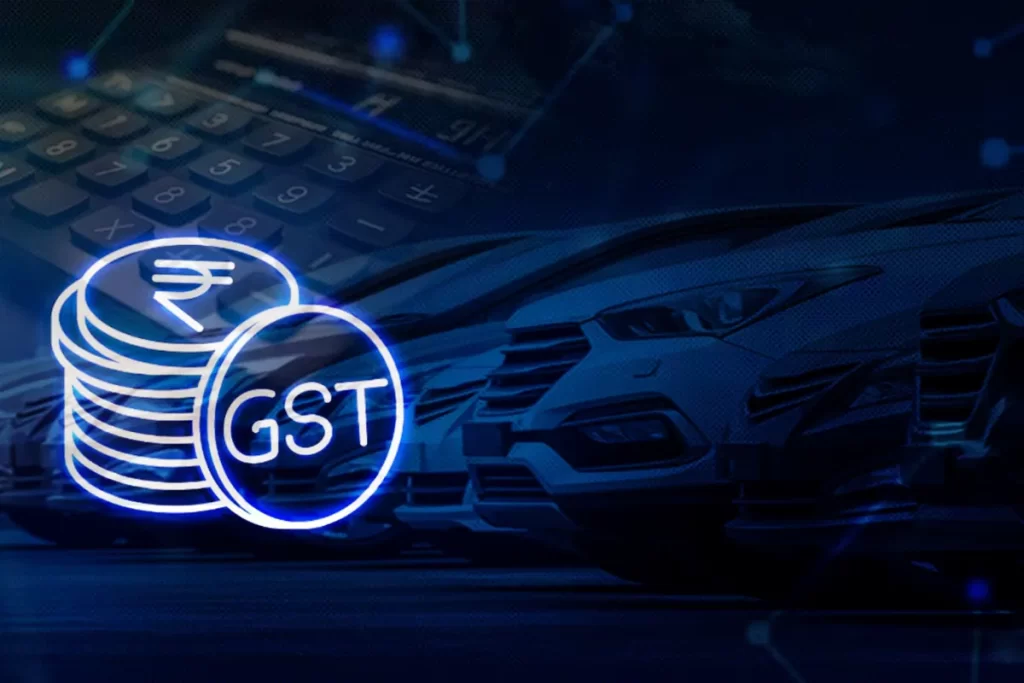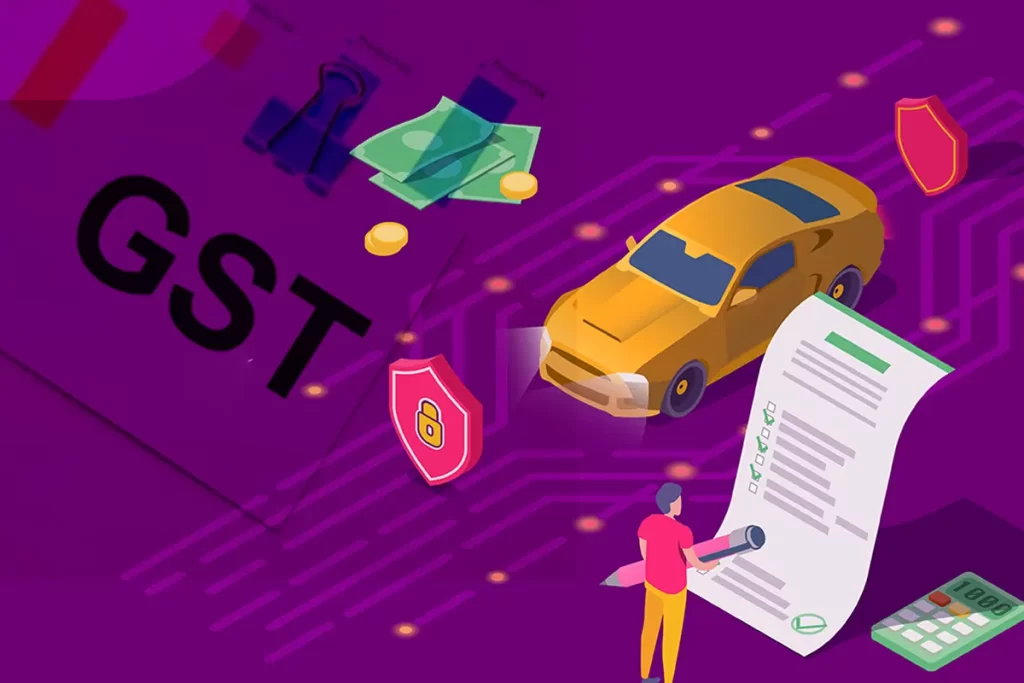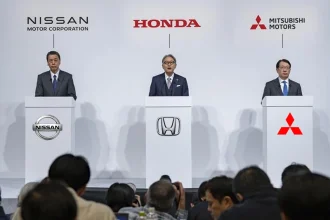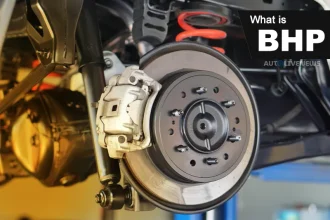While selling a used car, one of the most frequently asked questions is, “Is GST applicable on the sale of a used car by a company?” This is an important consideration for businesses as it affects the overall cost structure and compliance requirements. In this blog post, we will dive deep into the nuances of GST application on the sale of used cars by companies, providing detailed explanations and examples to ensure clarity on this subject.
Understanding GST and Its Implications
Before we answer the question, “Is GST applicable on the sale of a used car by a company?” It is essential to have a fundamental understanding of what GST (Goods and Services Tax) is and how it operates in India.
GST is a comprehensive, multi-stage, destination-based tax levied on every value addition. It replaced several indirect taxes that were previously levied by the central and state governments, such as VAT, service tax, and excise duty. GST is categorized into four main types:

- Central GST (CGST): Collected by the Central Government on intra-state sales.
- State GST (SGST): Collected by the State Government on intra-state sales.
- Integrated GST (IGST): Collected by the Central Government on inter-state sales.
- Union Territory GST (UTGST): Collected by the Union Territory Government on intra-Union Territory sales.
Now that we have a basic understanding of GST, let’s explore how it applies to the sale of used cars by companies.
Which Purchases are Applicable for GST?
Let’s start with the most fundamental criteria first: GST registration. An unregistered person does not have to pay GST while selling to an unregistered individual. So if you don’t have a GST registration, you can sell your pre-owned car without any GST.
The same applies if you are an individual selling your car to a GST-registered company. Since you aren’t registered, you cannot collect any tax under the government’s name. On the other hand, if you are a registered individual or company, the sale of a pre-owned car will be classified as the supply of goods [section 2(92)]. Hence, GST will apply to this sale.
So, which sales and purchases are viewed under GST? Simply put, any transaction that is a supply of goods and involves selling, renting, leasing, transferring, exchanging, or disposing is subject to GST. GST only applies on transactions where money, compensation, or some form of payment is received and if the transaction is a commercial one that leads to furtherance of business.
Typically, a consumer pays GST on purchase and does not collect GST in case of a sale. However, a company operates differently, and both pay and levies taxes. Measures like input tax credits ensure that companies do not end up paying double the tax.
Also read: How to Improve Car Mileage Easily?
Applicability of GST on Sale of Used Cars by Companies
The sale of a used car by a company is considered a supply of goods under the GST regime. However, the applicability of GST on such transactions is subject to specific conditions and scenarios. The key factors that determine whether GST is applicable on the sale of a used car by a company include the nature of the business, the classification of the car as capital goods or inventory, and the GST rate applicable to such transactions.
To address the question, “Is GST applicable on the sale of a used car by a company?” It is important to highlight the margin scheme in more detail. Under this scheme, GST is applicable only on the margin earned on the sale of the used car. This scheme is particularly beneficial for companies that deal in the trading of used cars, as it reduces the GST liability significantly.

The current GST tax rates on used cars are mentioned below. These reduced rates apply to sales of used cars in which the seller has not opted for ITC.
| Type of Used Car | GST applicable |
|---|---|
| Diesel Car with engine capacity up to 1500 cc and a length of 4000 mm or more. | 18% |
| SUVs with engine capacity greater than 1500 cc | 18% |
| Liquefied petroleum gases (LPG) or compressed natural gas (CNG)-driven motor vehicles with engine capacity of 1200 cc or more and a length of 4000 mm or more | 18% |
| SUVs with engine capacity greater than 1500cc | 18% (28% with ITC) |
| Other vehicles with engine capacity greater than 1500 cc | 18% (28% with ITC) |
*The above table is for reference only, as tax rates are subject to periodic change.
Conditions for Availing of the Margin Scheme
- The company must be a registered taxpayer under GST.
- The used car must have been purchased from an unregistered person or a dealer who has opted for the margin scheme.
The margin scheme helps reduce the overall tax burden on the sale of used cars, making it an attractive option for companies engaged in the used car business.
Also read: Car Body Types in Detail
Company Selling Used Cars as Capital Goods
When a company uses cars for business operations and later decides to sell them, these cars are classified as capital goods. The sale of such cars is also subject to GST, but the rate and calculation method may differ based on the input tax credit (ITC) claimed at the time of purchase.
If a company is not engaged in the business of buying and selling cars (e.g., a manufacturing company using cars for employee transportation), the sale of a used car by such a company would still attract GST. The GST rate applicable in this case would depend on whether the company had claimed ITC on the purchase of the car.
Example 1 (without ITC):
- Purchase price of the used car: ₹10,00,000
- The selling price of the used car: ₹12,00,000
- Margin: ₹2,00,000
- GST (18% on ₹2,00,000): ₹36,000
In this example, the GST payable on the sale of the used car is ₹36,000. GST is not applicable on purchases that have a negative profit margin, i.e., you do not need to pay GST when you sell your vehicle at a loss.
Example 2 (with ITC):
The reduced GST rates on the sale of used cars do not apply to those who have claimed ITC at the time of purchase. In this case, the GST will be calculated at the full tax rate on the total transaction amount instead of on the profit margin.
Also read: Which Tyres are Best For Your Car?
ITC Eligibility and How to Claim
In order to qualify for ITC, a car must be used to transport goods or passengers, or for training or navigation. A capital good must have been used for non-personal, business purposes in order to qualify for ITC claims. You cannot claim ITC on personal goods or if your purchase invoice is older than a year.
To claim ITC on vehicles, you must purchase the vehicle for use as public transportation, for rental or lease services, if you plan to teach driving, or for showrooms, for retail or manufacturing establishments.
To claim ITC, the supplier or seller you bought from must have already deposited the tax they collected from you with the government. This helps to verify your transaction and is an important step in the process of claiming ITC.
Sometimes, the tax collected on sale may be lower than the tax amount that was paid to the seller. In this case, you can claim a refund.
Also read: Most Luxurious Car Interiors in India
Documentation and Compliance Requirements
For companies selling used cars, proper documentation and compliance with GST regulations are critical. The sale of a used car must be accompanied by the appropriate tax invoice, reflecting the GST charged on the transaction. Additionally, companies must ensure that the sale is reported accurately in their GST returns to avoid any penalties or discrepancies during audits.
Key Documents Required:
- Tax Invoice: Must include details such as the car’s selling price, GST amount, and buyer information.
- GST Returns: The sale must be reported in the company’s GSTR-1 (outward supplies) and GSTR-3B (summary return).
- Sale Agreement: This should outline the terms of the sale and include details such as the car’s condition, selling price, and payment terms.
Impact of GST on the Sale of Used Cars by Companies
The introduction of GST has brought significant changes to the taxation of used car sales in India. Earlier, the GST on used vehicles used to be 28%. This was later decreased to make the trade of used cars cheaper and more profitable. While the margin scheme offers relief to companies dealing in used cars, the overall impact of GST on the sale of used cars by companies depends on factors such as the availability of ITC, the nature of the business, and the applicable GST rate.
Companies must carefully assess all factors before selling a used car to ensure compliance with GST regulations and to optimize their tax liability. Additionally, businesses should stay updated on any changes in GST laws that may affect the sale of used cars, as the government may introduce new provisions or amend existing ones.
Also read: Should I Buy a New or Used Car?
Conclusion
To answer the question, “Is GST applicable on the sale of a used car by a company?” Yes, GST is applicable, but the exact applicability and calculation depend on several factors, including the nature of the business, whether ITC was claimed, and whether the margin scheme is used. Understanding these nuances is crucial for companies to ensure compliance with GST regulations and to manage their tax liabilities effectively.
By carefully considering these aspects and maintaining proper documentation, companies can navigate the complexities of GST on the sale of used cars with confidence, ensuring a smooth and compliant transaction process.
In this blog post, we’ve explored the various scenarios and examples that illustrate the applicability of GST on the sale of used cars by companies. By understanding these principles, businesses can make informed decisions and optimize their tax strategies when dealing with used car sales.
Frequently Asked Questions (FAQs)
Does GST apply on sale of used or pre-owned cars?
Yes, but only if you have a registered GST number.
If I am an individual selling to another individual, will GST apply?
No, GST will not be applicable if you do not have a GST registration.
If I am buying a used car from a company, do I have to pay GST?
If you are buying from a GST-registered vendor, you will have to pay applicable GST rates.
Is GST on used cars the same as on new cars?
No, earlier it used to be the same but it was later reduced to make used car prices cheaper to buyers and more profitable to sellers.
Does ITC affect GST rate of used cars?
Yes, claiming input tax credit will affect the rate of tax on used cars as well as how it is calculated.















